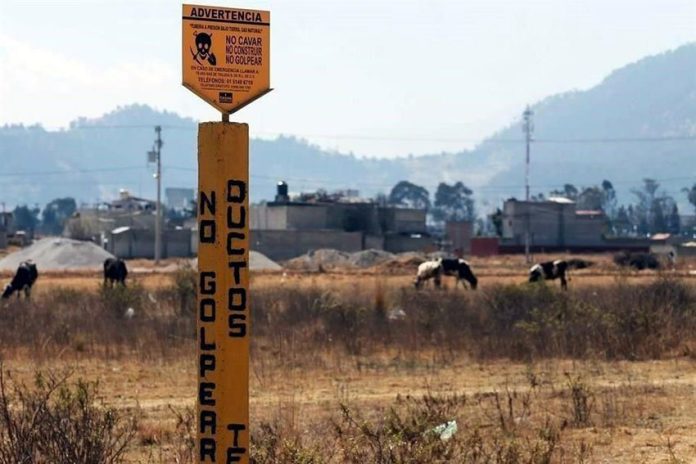Illegal taps on petroleum pipelines increased in both January and February compared to the same months last year despite the federal government’s crackdown on fuel theft.
The state oil company reported that 1,342 new pipeline perforations were detected in February, an increase of 9.6% over the same month in 2018.
In January, a month when the federal government was implementing an anti-fuel theft strategy that caused widespread gasoline shortages, there were 1,519 new pipeline taps detected, a 45% increase compared to a year earlier.
Hidalgo, where more than 100 people were killed in January by an explosion at a tapped pipeline, recorded the highest incidence of the crime in both months.
There were 994 illegal taps in the state in the two-month period, or just under 35% of the total number that was detected across the country.
México state recorded the second highest number of perforations, with 340, followed by Guanajuato with 287.
Three weeks after he took office on December 1, President López Obrador began implementing a strategy aimed at combating high levels of fuel theft, a crime that costs Pemex billions of pesos a year.
The strategy included the closure of several major pipelines and the deployment of the military and Federal Police to protect fuel infrastructure.
With pipelines closed, Pemex was forced to make greater use of tanker trucks to transport fuel, a situation that was blamed for causing prolonged gasoline shortages that affected more than 10 states.
López Obrador proclaimed the strategy a success, stating on February 21 that fuel theft had been slashed by more than 90% since November.
In a report to mark his first 100 days in office, the president said on March 11 that his government’s crackdown on the crime would generate savings of 50 billion pesos (US $2.6 billion) this year.
Earlier this month, López Obrador said that fuel theft had been reduced to an average of 5,000 barrels per day compared to an average of 56,000 barrels a day in 2018.
“The average in January of this year was 18,000 [barrels stolen]. In February: 9,000. In March: 8,000. So far in April, the daily average is 5,000 barrels a day,” the president told reporters on April 10.
The government’s claims that fuel theft has been significantly reduced appear incongruent with the new Pemex statistics on illegal taps in January and February, although a higher number of perforations doesn’t necessarily mean that greater quantities of gasoline were stolen.
The López Obrador administration is currently facing increased scrutiny of the data it presents to tout its successes since taking office almost five months ago.
The accuracy of the government’s daily homicide statistics has been questioned, and the president’s claim this week that job growth figures for the first quarter of 2019 were the best in 10 years was exposed as false.
Source: Reforma (sp)
